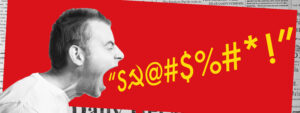Sometime last summer, I noticed a status update that a friend (in the loose sense that Facebook has given to that term) had posted to notify her network that using Facebook had exacerbated her depression, anxiety, and had begun to affect her work ethic. I hadn’t spoken to this person in years, but her status immediately resonated with me. Facebook has been linked to lower levels of concentration and self-esteem; after all, is it possible not to feel worse about yourself after being constantly bombarded with reminders of how your much cooler Facebook friends are spending their time? Between internships at major companies and semesters abroad in Europe, it seemed like everyone on my Facebook feed was making something happen for themselves. The immediate solution seems so simple; why not just deactivate?

For many, Facebook has become as essential to their lives as a smartphone or a laptop. It’s just something you are expected to possess in the “digital age,” a prerequisite for maintaining personal and professional connections. With the increasingly commonplace usage of FaceTime and the advent of apps like Venmo, Facebook has struggled to keep up as the one-stop location for online social interaction. Their Messenger app can now be used to call anyone on your friends’ list, send money, video chat, and has widely become a replacement for texting. With developments like these, Facebook embeds itself even further into your daily life, making it harder to simply sever ties. For many in our generation, Facebook has been a staple of social and daily life since our early teens, or even before. Being asked to give up Facebook is like being asked to give up a cell phone.
Facebook’s utilitarian value as a powerful professional networking tool also complicates the “deactivate” argument, especially for college students. I personally belong to at least three Facebook groups which regularly post job openings, internship opportunities, and are host to an entire network of people willing to offer career advice or lend contacts, and they are just a simple message away. Facebook groups are often essential for anyone looking to find affordable housing or a new roommate, and the events app helps many keep tabs on low-cost or free events going on near them every weekend.
I’ve recently come to the conclusion that my well-being is more important than maintaining a social network presence, even if that network has some genuinely useful features I’ve come to rely on over the last eight years that I’ve been an active user. If I need help finding an internship or applying for a job, I know there are people I can reach out to and services I can use right here at Mills. Since I’ve started using Facebook almost exclusively for school and work obligations, I’ve noticed that I’m much less reliant on social media for validation. It helps to think of Facebook as a tool that, thanks to Facebook’s impermanent deactivation feature, will always be there if you need it.


